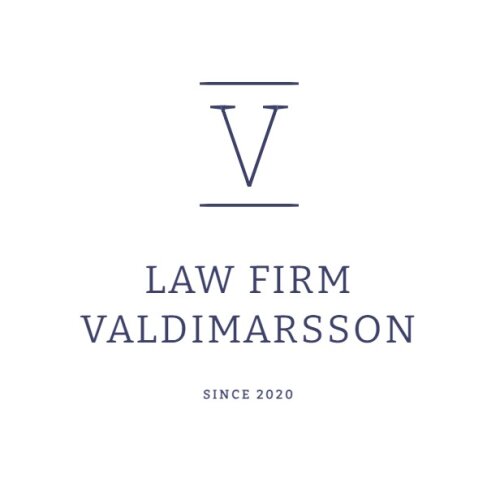Best Education Law Lawyers in Iceland
Share your needs with us, get contacted by law firms.
Free. Takes 2 min.
Or refine your search by selecting a city:
List of the best lawyers in Iceland
About Education Law in Iceland
Education Law in Iceland encompasses a range of legal provisions and regulations that govern the operation and administration of educational institutions in the country. These laws ensure that the rights of students, teachers, and educational institutions are protected and provide a legal framework for delivering education. Iceland's education system is mostly governed at the national level, with the Ministry of Education, Science, and Culture responsible for setting standards, guidelines, and policies. The country's education law covers areas such as compulsory education, higher education, vocational training, special education, and the rights and obligations of students and educators.
Why You May Need a Lawyer
There are various situations where individuals or institutions may require legal assistance in the field of Education Law in Iceland. Some common scenarios include:
- Disputes regarding the rights and responsibilities of students, such as issues related to disciplinary actions or special needs accommodations.
- Legal conflicts involving teachers or educational staff, including employment disputes or contract issues.
- Cases involving discrimination or violations of equal access to educational resources.
- Legal guidance for educational institutions in compliance with government regulations and policies.
- Assistance in navigating legislation related to educational standards, curriculum, or accreditation processes.
- Handling of grievances or appeals within the educational system, including admission decisions or grading disputes.
Local Laws Overview
In Iceland, education is compulsory from the ages of 6 to 16. The key aspects of local laws relevant to Education Law include:
- Compulsory Education: The Compulsory School Act outlines the framework for primary and lower secondary education, setting out responsibilities for local authorities and the rights of students.
- Upper Secondary Education: Governed by the Upper Secondary School Act, this phase is not mandatory but universally accessible, focusing on both academic and vocational training.
- Higher Education: Universities and colleges operate under the Higher Education Act, which outlines regulations for courses, faculty, and accreditation.
- Special Education: Legal provisions ensure that students with special needs are provided suitable educational opportunities, with support aligned with individual requirements.
- Teachers' Rights: Legislation protects teachers' employment rights, professional autonomy, and conditions of service.
- Non-Discrimination: Education law enshrines the principle of equal access and prohibits discrimination on grounds such as race, gender, or disability.
Frequently Asked Questions
What age is education compulsory in Iceland?
In Iceland, education is compulsory for children aged 6 to 16.
What rights do students with disabilities have in Iceland?
Students with disabilities are entitled to appropriate educational opportunities, including special accommodations and resources tailored to their individual needs, under Icelandic law.
Are there laws regarding homeschooling in Iceland?
Homeschooling, while not common, is permitted under Icelandic law. However, it must align with the curriculum and standards set by the educational authorities, and parents must obtain approval to homeschool their children.
How are disputes between teachers and schools resolved?
Disputes between teachers and schools can be resolved through mediation, grievances procedures within the institution, or legal channels via the relevant educational authorities or courts.
What is the role of the Ministry of Education, Science, and Culture in Iceland?
The Ministry is responsible for setting national educational policies, standards, and ensuring the quality and compliance of educational institutions in Iceland.
Can foreign children attend Icelandic schools?
Yes, foreign children have the right to attend Icelandic schools, and efforts are made to integrate them and provide language support where necessary.
What legal steps can be taken if a student faces discrimination?
Victims of discrimination can report the issue to school authorities for resolution or file a formal complaint with relevant governmental bodies or legal services if necessary.
Are private schools subject to the same regulations as public schools?
Private schools must comply with national education regulations to ensure they meet specific standards, although they may have more autonomy regarding their curricular and operational practices.
Can students challenge their grades legally?
Students have the right to appeal their grades through established procedures within their institution, and in some cases, legal intervention may be possible if due process is not followed.
How are educational standards monitored in Iceland?
The Ministry of Education, Science, and Culture monitors educational standards through inspections, assessments, and periodic reviews to ensure compliance across educational institutions.
Additional Resources
For further assistance in Education Law matters, consider exploring the following resources:
- The Ministry of Education, Science, and Culture provides comprehensive information and guidelines.
- The Icelandic National Agency for Education offers support for compliance and standards.
- The Ombudsman for Children in Iceland can address concerns related to children's rights in education.
- Local legal firms specializing in Education Law for personalized legal advice.
- Non-profit organizations focusing on educational rights and advocacy in Iceland.
Next Steps
If you need legal assistance in Education Law, begin by consulting with a lawyer who specializes in this area. Research local firms or lawyers with expertise in educational matters. Prepare any relevant documentation and details about your situation for the consultation. Additionally, connecting with educational or legal aid organizations can provide further guidance and support tailored to your case.
Lawzana helps you find the best lawyers and law firms in Iceland through a curated and pre-screened list of qualified legal professionals. Our platform offers rankings and detailed profiles of attorneys and law firms, allowing you to compare based on practice areas, including Education Law, experience, and client feedback.
Each profile includes a description of the firm's areas of practice, client reviews, team members and partners, year of establishment, spoken languages, office locations, contact information, social media presence, and any published articles or resources. Most firms on our platform speak English and are experienced in both local and international legal matters.
Get a quote from top-rated law firms in Iceland — quickly, securely, and without unnecessary hassle.
Disclaimer:
The information provided on this page is for general informational purposes only and does not constitute legal advice. While we strive to ensure the accuracy and relevance of the content, legal information may change over time, and interpretations of the law can vary. You should always consult with a qualified legal professional for advice specific to your situation.
We disclaim all liability for actions taken or not taken based on the content of this page. If you believe any information is incorrect or outdated, please contact us, and we will review and update it where appropriate.
Browse education law law firms by city in Iceland
Refine your search by selecting a city.











